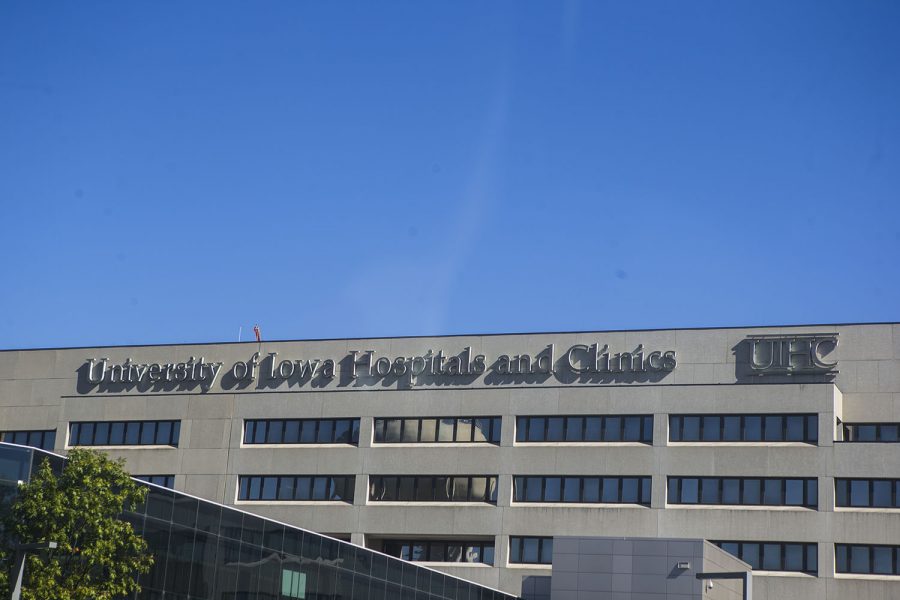UIHC grants nearly $18 million worth of medication through assistance program
The UIHC facilitates the only Medication Assistance Center in Iowa City. In the past year, the UIHC granted patients $17.7 million worth of medication.
May 5, 2019
Amid rising pharmaceutical prices nationwide, the University of Iowa Hospitals & Clinics facilitates the only Medication Assistance Center in Iowa City — the UIHC granted patients $17.7 million worth of medication from July 2018 to March.
Wenda Ostrem, a pharmacist financial counselor at the UIHC Medication Assistance Center at the UIHC, wants more people in the Iowa City community to know that assistance programs exist. In the last year, the programs have saved patients more than $27 million between cost-saving education and medication given.
“We don’t make the hospital money, we cost the hospital money,” Ostrem said. “But I think we make a good argument for cost avoidance. If patients can get the drugs they’re supposed to take, take them like they’re supposed to — hopefully, we are cutting down on ER visits, we’re cutting down on hospitalizations.”
The Medication Assistance Center only serves patients in UIHC network, but the staff hopes to partner with other assistance programs across the state, Ostrem said.
Patients can access a wide variety of medications, including expensive cancer drugs and insulin to treat diabetes. Patients typically fill out applications that identify the circumstances in which they cannot afford medication, and the center decides the best route to help the patients.
This could be in the form of a rebate, coupon, or co-pay card.
“I feel bad for the patients who are elderly or who have a lot of health concerns who just aren’t quite up to the task of doing [medical-assistance research] on their own, which is why we’re happy to step in and help,” Ostrem said.
When she started working at the UIHC 32 years ago, the only group of patients that typically needed financial help were those without insurance, she said. Now, insurance is more complicated, she said, and patients with high deductible plans are the primary group of patients the program assists.
Ostrem contacted the DI after the paper published an article about Jesse Lutgen who passed away after he could no longer afford insulin to treat his Type 1 diabetes.
The price of insulin rose nearly 200 percent from 2002 to 2013, according to the American Medical Association.
From 2008 to 2016, the cost of oral medications increased annually by 9.2 percent, and the cost of injectable drugs increased annually by 15.1 percent, according to a 2019 report from the Journal of Health Affairs.
Ostrem said her program works closely with pharmaceutical manufacturers, and that programs such as the one at UIHC fosters a more positive image of manufacturers — one reason the manufacturers cooperate.
Other statewide medication-assistance programs exist in Iowa, including the Iowa Prescription Assistance Program.
Sen. Chuck Grassley, R-Iowa, the chairman of the Senate Finance Committee, held committee hearings in February with seven pharmaceutical manufacturers to address rising prices.
Grassley said in a statement that he is aware of some patients having to ration doses of medication because they cannot afford to buy the amount they need.
“I’m not a doctor, but rationing one’s medicine doesn’t sound like a safe prescription for health and wellness,” Grassley said in the statement. “Others have told me about leaving their prescription on the pharmacy counter because it cost too much.”
Ostrem said it’s frustrating that pharmaceutical manufacturers set their prices so high.
“My suggestion would be, ‘Why don’t you just lower the price of your insulin and then we don’t have this program, and then, you know, we’ve taken the middleman out,’ ” she said. “But we’ve learned to work within the constraints of the way this system goes.”





















